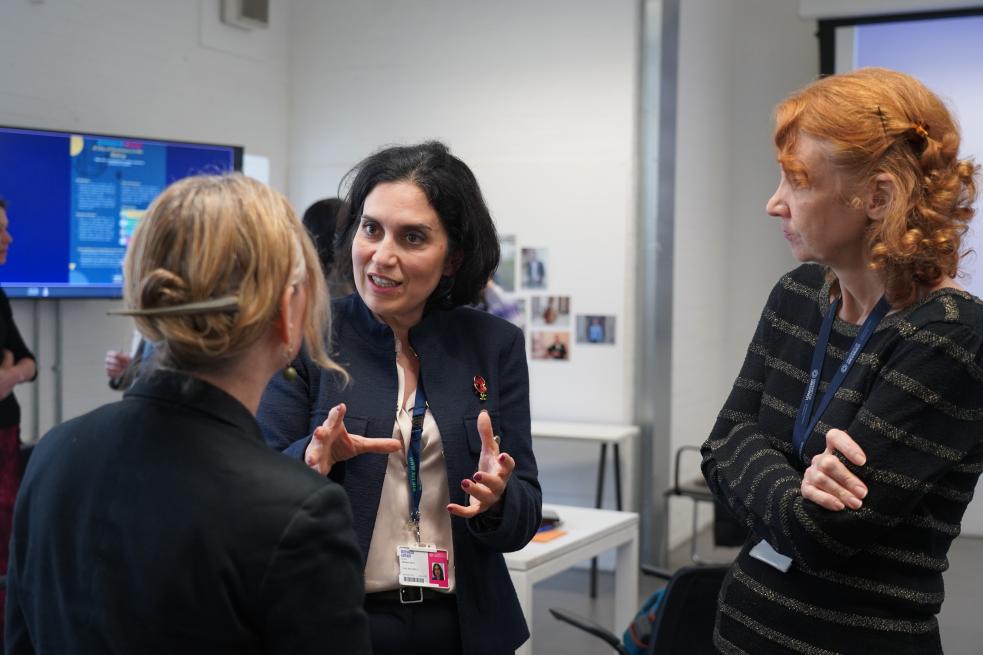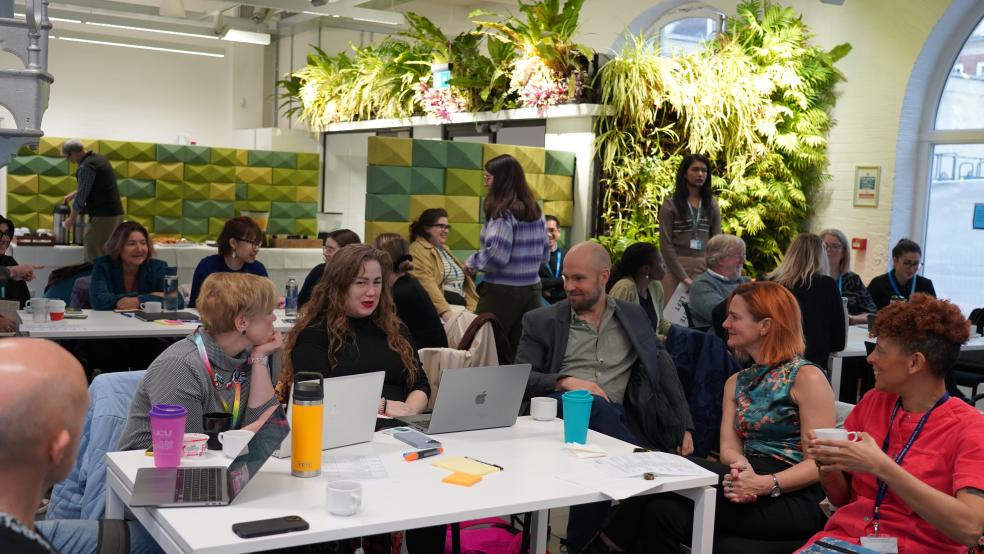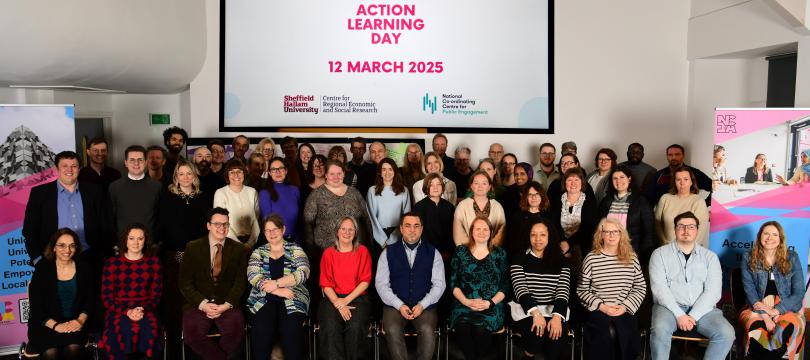What does ‘Civic’ mean at the University of Greenwich? Reflections on a growing conversation
Libby Turner and Jackie Fotheringham from Greenwich Research and Innovation at the University of Greenwich reflect on their work to bring together civic activity.

Initial steps
Here at Greenwich Research and Innovation, we’re on a mission to maximise our positive civic impact on the local, national, and international communities who interact with the university through research and knowledge exchange.
Back in May, Jackie brought together members of our academic community via the Knowledge Exchange Community of Practice, which meets monthly for presentations and discussions on topics chosen by the community. May’s instalment focused on ‘Civic Engagement’ and heard from Greenwich’s academic lead for participatory research, Professor Tracey Reynolds and Erica Scott from Citizen’s UK. The community raised insightful questions, ideas and proposals. We went away and conceptualised an event to celebrate impactful civic engagement activity, highlight best practice and ignite a conversation about what ‘civic’ means at Greenwich currently, as well as its potential evolution.
Showcasing Civic Activity
Fast-forward to September: We called for abstracts of research and knowledge exchange projects where civic engagement was embedded within the design, delivery and impact. We received 47 fantastic submissions, spanning across all four of our faculties and research institutes. The variety and quality of submissions emphasised the need to bring members of the academic community together to strengthen the existing culture of interdisciplinary civic collaboration.
In early November, we gathered in the heart of the University of Greenwich to reflect, connect, celebrate, and develop ideas. Hosted by Greenwich Research and Innovation, the event offered a valued opportunity for discussions that cut across disciplines, faculties, and research expertise. What unfolded went beyond a showcase, it was a was a moment of collective coming-together around a common goal with diverse outcomes.
The event was structured into three sections of lightning talks, focusing on civic engagement through research, knowledge exchange, and student projects. Fourteen colleagues presented from across all four faculties and research institutes, highlighting the diversity and breadth of civic work at Greenwich. The beauty of having so many academics in one place and hearing from different disciplines was that connections were formed immediately. For example, many of our academics recognised that their civic work on social justice and the criminal justice system was interconnected, even though they approached these areas from different perspectives.
“Catherine and I were vaguely aware that we were both connected to the Greenwich Youth Justice Service, but hearing the presentations made us realise how closely the projects were aligned and we are already talking about how we can involve criminology placements in future gardening projects or other diversionary projects for young people at the Youth Justice Service.”
Dr Elaine Williams after listening to Dr Catherine Maffioletti’s lightning talk
Inspiration
We were lucky enough to be joined by two keynote speakers. Zoe Williamson, Head of Services from the National Co-ordinating Centre for Public Engagement (NCCPE) explored Civic Engagement in UK Higher Education: Context, Possibilities, and Practical Pathways. Zoe’s talk explored the purpose and scope of ‘civic’ work across higher education, and its inherent challenges. Later in the day, Zoe closed the event with a collaborative workshop, filled with fruitful discussions on what 'civic' means to Greenwich, what we could achieve in the future, and what we need to get there.
We also heard from James Asfa, Assistant Director at Citizens UK. James detailed what a university partnership with Citizens UK could look like, providing inspiring examples of collaborative movements and the positive impact experienced by communities as a result. James’ talk encouraged thought-provoking discussions amongst Greenwich colleagues about ways to ‘go the extra mile’ with some of our current civic work.

What Next?
One question threaded throughout the event: What does ‘civic’ mean at Greenwich? Naturally, there is no single definition across our dynamic academic community. However, as the abstracts, lightning talks and posters revealed, what emerges strongly is our dedication, creativity and impact-driven approach to working with community and civic partners.
Greenwich’s civic engagement strengths lie in our diversity of expertise, flexible and can-do approach, and collaborative culture. The latter shone through at the event, with colleagues from across disciplines connecting on subject matter, civic partners and engagement processes.
This event marks the start of a wider conversation, one that welcomes every member of the university community into the fold. We came away with pages of notes, reams of ideas, and a motivation to strike while the iron is hot. Our next step is to begin mapping Greenwich’s civic work via the NCCPE and Civic University Network’s Place Navigator tool and to deliver a series of lunch and learns to bring colleagues into this process.
This event unearthed more than expected. We discovered civic projects from pockets across Greenwich, a clear sign that there is more bubbling beneath the surface. We look forward to working with the whole university community to identify more impactful stories, connect new ideas, and shape a civic identity that reflects our values and expertise.

